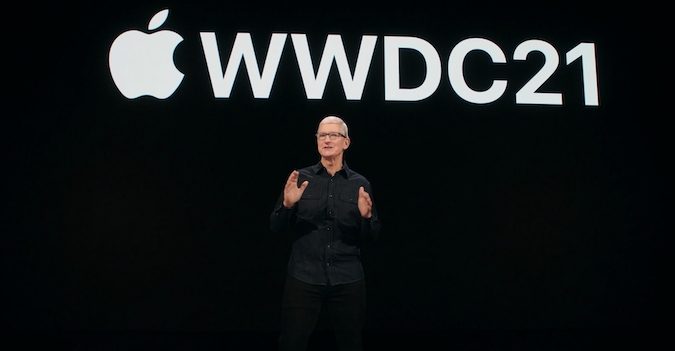On Monday, at its 2021 Worldwide Developers Conference (WWDC), Apple unveiled several privacy features that are coming with its new iOS 15, iPadOS 15, macOS Monterey, and watchOS 8 operating systems later this year.
Apple announced iCloud+, which brings several new features on top of iCloud, including a new private browsing service named Private Relay.
Private Relay is designed to ensure that when the user browses the internet with Safari, traffic leaving their device is encrypted to prevent third-parties — this allegedly includes Apple — from intercepting it. Based on Apple’s limited description of the service, it sounds like a VPN, but from a technical perspective it may be more similar to the Tor anonymity network.
According to Apple, all requests are sent through two relays: one that assigns an anonymous IP address to the user, and one that decrypts the web address they want to access and forwards the user to their destination,
“This separation of information protects the user’s privacy because no single entity can identify both who a user is and which sites they visit,” Apple said.
Private Relay will not be available in China due to local laws. Back in 2017, Apple was forced to remove some third-party VPN services from its Chinese App Store due to local regulations.
According to Reuters, other countries where Private Relay will not be available due to local regulations include Belarus, Colombia, Egypt, Kazachstan, Philippines, Saudi Arabia, South Africa, Turkmenistan and Uganda.
Another new privacy feature in iCloud+ is called Hide My Email, which enables users to keep their personal email address private. The feature allows users to easily create and share unique email addresses that forward messages to their personal inbox. Hide My Email is built into Mail, Safari and iCloud settings, and Apple says users can create as many email addresses as they need and they can delete them at any time.
iCloud+ also allows users to connect an unlimited number of home security cameras in HomeKit Secure Video. Users are provided encrypted storage that does not count against their iCloud storage space, and activity detected by security cameras is analyzed and encrypted on the local device in the home before it’s sent to iCloud.
Apple on Monday also announced Mail Privacy Protection, which prevents email senders from using invisible pixels to collect information about the user.
“The new feature helps users prevent senders from knowing when they open an email, and masks their IP address so it can’t be linked to other online activity or used to determine their location,” Apple explained.
The tech giant also announced improvements to Intelligent Tracking Prevention in Safari. The user’s IP address will be hidden from trackers to prevent them from using IPs as unique identifiers.
Apple also informed customers about App Privacy Report, which provides an overview of how an application treats user privacy. Users can find out how often an app uses the permissions they’ve been granted, and which third-party domains they are contacting and may be sharing data with.
Some changes have also been announced for Siri, which Apple says is used monthly on more than 600 million devices. The company is introducing on-device speech recognition, which means audio is processed on the device directly — the data never leaves the device — in an effort to address one of the main privacy concerns related to voice assistants, namely unwanted audio recording.
In the coming days at WWDC 2021, Apple will share security- and privacy-related information for app developers. This includes how they can build security and privacy protections into their products; how they can prepare their apps, servers, and networks to work with iCloud Private Relay; how they can measure ad campaigns without compromising privacy; how their apps can support on-device verification codes; the use of the Web Authentication standard for passwordless authentication; automatically finding security and other bugs with Xcode; and tools made by Apple to help developers keep their apps and systems safe and secure.
Related: Apple Moving Forward on App Privacy, Despite Pushback
